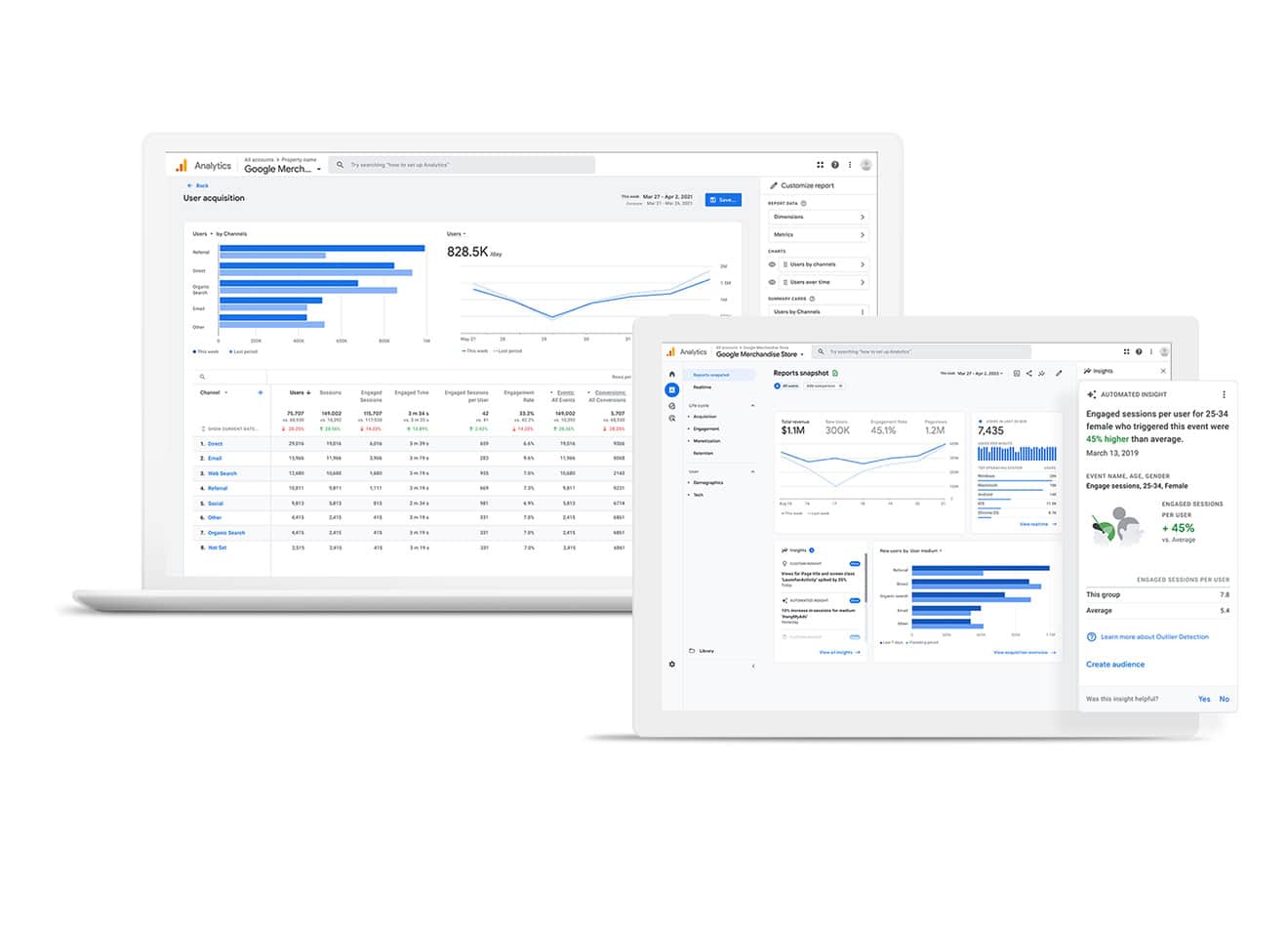Unlocking Success: The Power of Data-Driven Campaigns in Digital Marketing In the short-lived realm of digital marketing, a campaign’s success or failure can be determined by how well it uses data. Data-driven campaigns make use of information obtained from a variety of metrics to guide tactics, enhance output, and eventually increase conversions. Effective data utilization is more important than ever as companies increasingly rely on digital platforms for their marketing initiatives. This post will examine the fundamental elements of data-driven campaigns, including determining important metrics and performance optimization for ongoing enhancement.
Key Takeaways
- Data-driven campaigns leverage insights from customer data to create more targeted and effective marketing strategies.
- Key metrics for success in data-driven campaigns include customer acquisition cost, customer lifetime value, and return on investment.
- Data analytics tools and platforms such as Google Analytics and Adobe Analytics help marketers analyze and interpret customer data to make informed decisions.
- Targeting the right audience with precision involves using demographic, behavioral, and psychographic data to tailor marketing messages to specific customer segments.
- Personalizing campaigns for maximum engagement involves using customer data to create personalized content, offers, and recommendations.
- Measuring and evaluating campaign performance is essential for understanding the effectiveness of data-driven strategies and making adjustments as needed.
- Optimizing campaigns for continuous improvement involves using data insights to refine targeting, messaging, and offers for better results over time.
- Case studies of successful data-driven campaigns showcase how companies have used customer data to achieve significant marketing results.
Analytics and insights obtained from consumer behavior, market trends, & campaign performance serve as the cornerstone of data-driven campaigns. Marketers can make well-informed decisions that improve their strategies and results by using data. Because data can clearly show what works & what doesn’t, marketers can quickly change course & modify their strategies in response to real-time feedback.
Also, data-driven marketing encourages an open and accountable culture in businesses. It is simpler to defend marketing expenditures and show stakeholders return on investment when decisions are supported by data. This promotes a more calculated approach to marketing campaigns in addition to fostering trust.
Effective use of data will be crucial for businesses to achieve long-term success as they continue to navigate an increasingly competitive environment.
It is essential to determine the key performance indicators (KPIs) that will be used to gauge the success of data-driven campaigns.
Depending on the campaign’s objectives, these metrics may change, but they usually consist of things like conversion rates, click-through rates (CTR), return on ad spend (ROAS), and customer acquisition cost (CAC). Marketers can learn a lot about the performance of their campaigns and areas for improvement by concentrating on these metrics. Engagement metrics like time on site, bounce rates, and social media interactions must be taken into account in addition to more conventional metrics.
| Metrics | 2019 | 2020 | 2021 |
|---|---|---|---|
| Conversion Rate | 15% | 18% | 20% |
| Customer Acquisition Cost | 50 | 45 | 40 |
| Return on Investment (ROI) | 200% | 250% | 300% |
These metrics can point to areas that need optimization and offer a more thorough understanding of how audiences are engaging with content. A clear set of KPIs can be set up at the beginning to give marketers a framework for tracking campaign performance and making sure it fits with overarching business goals. There are many options available to marketers due to the wide and diverse range of data analytics tools available. Platforms with strong features for monitoring user behavior, examining traffic sources, & producing reports that assist in decision-making include Google Analytics, HubSpot, and Tableau. With the help of these tools, marketers can learn more about the characteristics, inclinations, & actions of their target audience, which can help them develop more effective campaigns.
Apart from conventional analytics platforms, new technologies like machine learning (ML) and artificial intelligence (AI) are completely changing how data is examined. Large volumes of data can be processed swiftly by these technologies, which can also spot patterns that human analysts might not notice right away. Businesses can improve their ability to forecast customer behavior & adjust their campaigns by integrating AI-driven tools into their marketing strategies. The ability to precisely target particular audiences is one of the biggest benefits of data-driven campaigns. Marketers can generate highly targeted segments that enable customized messaging by examining demographic information, interests, & online behaviors. This degree of targeting improves the general customer experience in addition to raising the possibility of engagement.
Marketers should use tools like audience segmentation software and customer relationship management (CRM) systems to target audiences effectively. With the use of these tools, companies can group their audience according to a number of factors, including past purchases or degree of engagement. Higher conversion rates can result from marketers creating messages that deeply connect with their target audience by knowing who their customers are and what they want. One essential element of effective data-driven campaigns is personalization. Today’s customers demand experiences that are specifically catered to their requirements and tastes. Marketers can increase engagement & cultivate brand loyalty by using data insights to produce personalized content that speaks to specific users.
Campaigns can be effectively personalized in a number of ways. To deliver customized messages based on user behavior or preferences, for example, email marketers can use dynamic content. Retargeting advertisements can also remind users of items they have seen but not bought, enticing them to come back and finish their purchases.
Through the use of personalization techniques across multiple platforms, companies can produce a unified experience that increases interaction & conversions. Recognizing the effectiveness of campaigns. Assessing a campaign’s performance after it has been launched is essential to determining its efficacy. Marketers can determine what is effective & what requires modification by routinely assessing campaign performance against predetermined KPIs. Analyzing data from multiple sources, such as email marketing metrics, social media insights, & website analytics, is part of this process.
The effectiveness of A/B testing. An excellent technique for gauging the effectiveness of campaigns is A/B testing. Marketers can assess which of two ad or landing page versions performs better by comparing user interactions.
Campaigns are improved by this iterative process, which also encourages marketing teams to adopt a continuous improvement mindset. Goal-aligned marketing initiatives. Through regular performance evaluation and measurement, companies can make sure that their marketing initiatives stay in line with their objectives. Optimization is a continuous process that entails improving campaigns using performance information and knowledge gathered from earlier initiatives.
This could entail changing the wording of the ads, redistributing funds, or trying out various targeting techniques. The aim is to minimize wasteful spending and maximize return on investment. Establishing a feedback loop, in which lessons learned from one campaign inform subsequent efforts, is an efficient optimization technique. If a specific ad format or messaging works well for a certain audience segment, for instance, marketers can duplicate that success in subsequent campaigns.
Also, marketers can adjust their strategies proactively rather than reactively by keeping up with changes in consumer behavior & industry trends. Let’s look at a few case studies that demonstrate effective implementations to show the effectiveness of data-driven campaigns in action.
Case Study 1: Retail Brand Increases Sales Through Targeted Email Campaigns A well-known retail brand successfully segmented its email list by using customer purchase history data.
Through the analysis of previous purchases and browsing patterns, they developed customized email campaigns that included product recommendations based on the preferences of specific clients.
The brand consequently experienced a 15% increase in sales and a 25% increase in email open rates, both of which were directly attributable to these focused campaigns. Case Study 2: E-commerce Business Uses A/B Testing to Improve User Experience An e-commerce business used A/B testing on the checkout process of its website to find cart abandonment-causing friction points. Through experimenting with various layouts and calls to action, they found that streamlining the checkout procedure greatly increased conversion rates by 30%. In addition to improving user experience, this optimization raised the company’s earnings. Case Study 3: Software-as-a-Service (SaaS) Company Uses Data Analytics to Retain Customers A SaaS company tracked user engagement metrics on its platform using data analytics tools.
Based on usage trends, they were able to identify users who were likely to leave, & they used this information to launch focused re-engagement campaigns that featured customized emails & exclusive deals. Over a six-month period, this proactive approach reduced churn rates by 40%. In summary, the success of contemporary digital marketing depends on data-driven campaigns. Businesses can achieve new levels of engagement and conversion rates by learning from case studies, leveraging analytics tools, identifying key metrics for success, understanding the power of data, targeting the right audience, personalizing content, measuring performance, and continuously optimizing.
When you start your next marketing campaign, keep in mind that using data wisely will improve your tactics and set up your company for long-term success in the rapidly changing digital market. Are you prepared to advance your digital marketing initiatives? Put data-driven strategies into practice right now, and see how your campaigns flourish!
Data-driven campaigns have become essential for businesses looking to maximize their marketing efforts. One related article that delves into the importance of data-driven strategies is We generate high-quality leads for local service providers. Contact us now to learn more!Lets Get Started Today!






